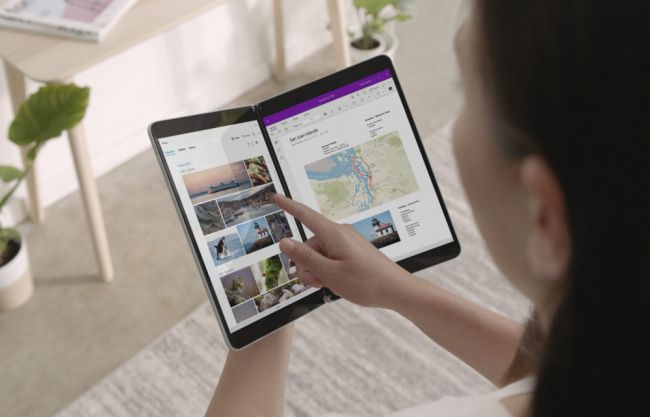Job Listing Confirms Win32 App Support for Windows 10X Foldable PC OS
LinkedIn? More like "LeakedIn."

LinkedIn is good for sharing your work history, networking with other professionals and accidentally revealing details about upcoming products in job listings. Case in point: Windows Latest spotted this week that Microsoft's listing for a Principal Software Engineering Lead for its Azure Core OS Kernel team leaks new information about the Windows 10X operating system (OS) for foldable devices that Microsoft announced in October.
Microsoft plans to use Windows 10X in the Surface Neo foldable PC it revealed last month (according to Thurrott, it could eventually make its way to more traditional PCs as well). It's based on Windows Core, a new version of Windows that Microsoft is purportedly using to develop a modular OS that can be modified to suit various kinds of hardware.
The company revealed precious little else about the OS. It showed off some of the optimizations it's made to bring Windows to foldable devices, but that was pretty much it. We don't know when Microsoft will start publicly testing the OS or how it will compare to the Windows 10 feature-wise. Or at least we didn't--that's where the LinkedIn job posting comes in.
Here's the key information from the posting:
“The Azure Core OS Kernel team is seeking an experienced development lead to manage the Containers team. The Containers team collaborates with teammates throughout Windows to design, develop and enable new scenarios that leverage containers for improved security, isolation and compatibility. These technologies form the basis for Store-delivered Win32 applications, Windows Server Containers, Windows Defender Application Guard, Windows Sandbox and Win32 application support for Windows 10X on dual-screen devices like Surface Neo.”
This paragraph confirms that Windows 10X devices will support Win32 apps via containers. It could also mean the OS will support those other features too; although, that isn't made totally explicit in the paragraph above (containers being used for technologies in Windows 10 and Windows 10X doesn't necessarily mean the OSes will have one-to-one feature matching).
Supporting Win32 apps should allow Windows 10X to alleviate any fears about it not offering enough software at launch. It will probably take a while for developers to take advantage of foldable devices' potential--assuming those products reach enough consumers to justify the effort--but at least people can use 32-bit apps while they wait for the rest of the Windows ecosystem to catch up with Microsoft's efforts.
Get Tom's Hardware's best news and in-depth reviews, straight to your inbox.

Nathaniel Mott is a freelance news and features writer for Tom's Hardware US, covering breaking news, security, and the silliest aspects of the tech industry.